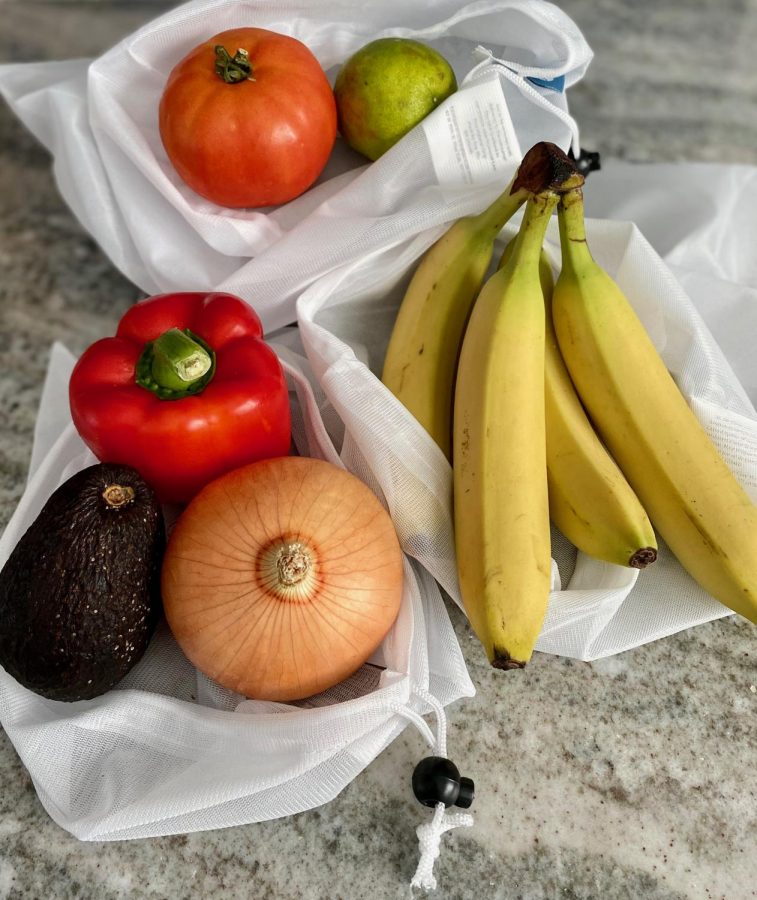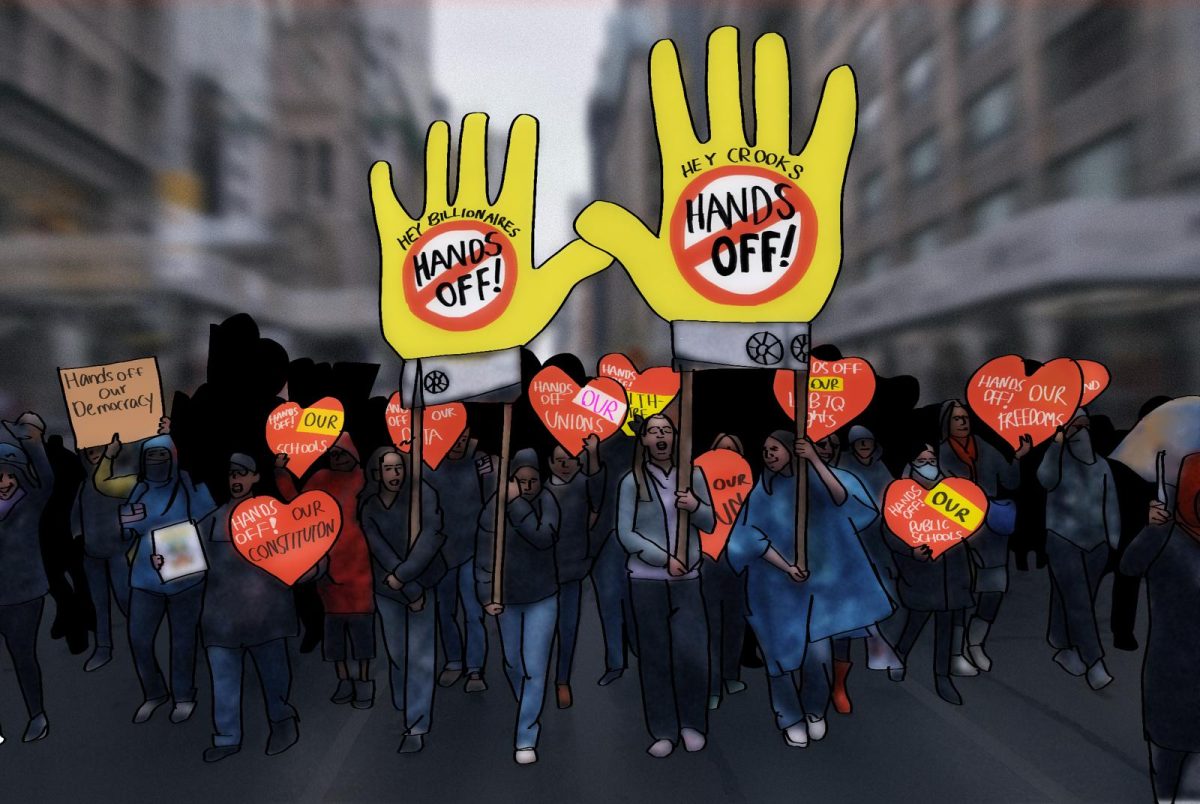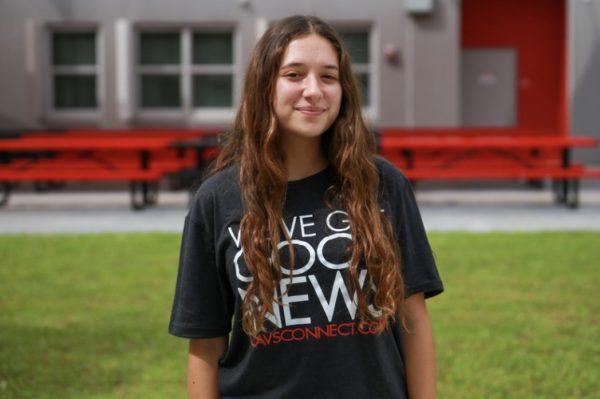Sustainable Alternatives for Everyday Items
Produce bags are a sustainable way to store food items and keep them fresh.
Oct 3, 2020
The term sustainability has grown in popularity throughout the 21st century and is now heard all over the news, social media and television. This may leave people wondering: what is sustainability exactly and why has it become such a large topic of interest?
Environmental sustainability is the maintenance of consistent practices and elements that contribute to the long-term quality and betterment of the environment. In easier terms, the use of something that is good for the Earth in some way, shape or form. You may be wondering how to live a more eco-friendly life; here are seven sustainable alternatives to everyday objects people use in their daily lives.
1. Reusable Grocery and Produce Bags
Switching out plastic bags at the grocery store for cheap cloth bags can decrease plastic waste dramatically. Every time someone is in the produce aisle at the supermarket, they always tend to grab the small plastic bags offered at the store. Stocking up on fruits and vegetables, which are associated with living a healthy lifestyle, should not be accompanied by single-use plastic baggies as it is counteractive. Plastic bags can seep harmful plastic toxins into fresh food and make it spoil faster. While they are convenient, they are one of the most detrimental items to animals, oftentimes suffocating small creatures and sea life. It is important to keep your own reusable bags in your car or right at your door before you leave your home so that you do not forget them. Everytime someone uses an eco-friendly alternative to bags, they are saving 100-700 plastic ones. Next time you are checking out at the grocery store, make sure to say no to plastic!
2- Compostable or Metal Utensils
Imagine if every time you ate a meal, you threw away one plastic fork. This would be roughly three forks a day, 21 forks a week and 84 forks a month. Now imagine if we counted other utensils as well. Making sure you utilize reusable metal cutlery is an extremely important step in living a more sustainable life. One may believe that switching over to metals can be costly but in reality, these types of utensils are easy to find in cheap places. Interchanging plastic for metal can reduce waste quicker than you think.
3. Reusable Coffee Cups and Water Bottles
According to USA Today, Starbucks sells around four million coffee drinks every day. That is four million plastic cups being thrown away and tossed into enormous landfill piles across the globe. Purchasing a reusable coffee cup can make a big difference in the amount of plastic waste. Another prevalent issue is the use of plastic water bottles. Instead of purchasing heavy bulks of water bottles every week, investing in a good quality reusable one will help minimize the waste being produced. Reusable water bottles also end up being cheaper in the long run. Water fountains are usually located inside of any established location and are relatively easy to find within any community. They are a great way to refill your container up quickly and keep going with your busy day. An added bonus of this alternative is that they often keep your drink either warmer or colder for long periods of time, depending on your preferred manner. Gifting sustainable items is a great way to spread the idea of a green lifestyle to your friends and family.
“Using a reusable water bottle has definitely helped save money in my household. I have helped in reducing plastic waste and my water stays colder for longer. There are so many benefits to using this reusable alternative. I recommended it to everybody,” sophomore Gabriela Puns said.
4. Reusable Straws
What is a reusable water bottle without a reusable straw? The “save the turtles” trend a couple of years back was perceived mainly as a joke to a lot of people, but plastic straws really do produce a lot of waste, especially when you consider the amount of drinks that are served in any food establishment. Plastic straw alternatives such as metal or compostable ones made from recycled material help reduce plastic waste in great amounts. Many restaurants, bars and other eating facilities that offer drinks have already made the change and are using recyclable alternatives.
5. Reusable Lunch Containers
Both students and adults either pack or purchase lunch everyday while at school or work. Creating a completely waste-free lunch should mean that everything can be reused, recycled or composted. Investing in items such as a reusable lunch bag, and metal or glass containers can make a big difference by eliminating the products that would be thrown away and wasted during lunch. These containers are effortless to wash and often have space to store full meals and snacks. Similar to the metal utensils, these containers are also easy to find in stores like Dollar tree.
“It is very important to use these items because little by little, the more people that start using them, the more progress will be made. I believe this could be a start to a healthier and cleaner future,” sophomore Sofia Rodriguez said.
6. Soap Bars
Another easy and sustainable switch is ditching the useless packaging on hand soap bottles and switching to soap bars. Soap bars are either wrapped in recyclable cardboard or completely loose. These bars usually contain natural ingredients that the conventional bottled soaps do, so your skin also benefits from this transition. Also, solid bars tend to last much longer than liquid ones due to the fact that there is no plastic pump on them.
7. Cloth Masks
Masks have become a new part of our daily lives and are essential any time we want to leave our homes. It is important that these new requirements are sustainable and do not produce more waste than we already create. When people throw their masks on the ground, the strings often end up in animal habitats, choking the creatures and putting their life at risk. Cloth masks can be washed multiple times and will always work properly.
Making an effort to make these trouble-free switches really impacts the environment more than we think. Living a more eco-friendly lifestyle can not only improve the quality of our environment, but also make the Earth a healthier and more beautiful place to live in. It may seem like one person can not do much change, but if we all come together we can reverse some of the effects of waste production. Sustainability allows us to create a world where we value the planet and keep it clean for generations to come.












